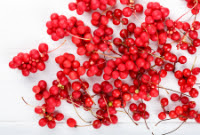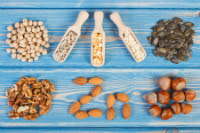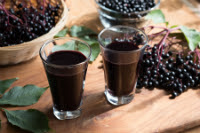
When it comes to our health, there are two schools of thought: the Germ Theory and the Terrain Theory. Understanding the differences is critical, particularly because it involves the use of antibiotics, which should be used sparingly and for the right reasons. So let’s examine this often confusing topic.
The Germ Theory asserts that, regardless of the state of our health, germs that can cause disease will, indeed, cause disease. That’s because the germ is responsible for our illness and not the overall state of our health. Traditional medical practice calls for identifying and destroying invading germs, including bacteria (but not by viruses including cold and flu) through the use of antibiotics. Unfortunately, antibiotics are often over-prescribed and germs are mutating to survive them.
On the other hand, the Terrain Theory, embraced by holistic practitioners from a wide range of medical fields, asserts that germs that can cause disease will do so when the body is more susceptible and that the more healthy we are (the terrain) the less likely we will become ill; if we do, we will become less ill. In other words, when the body’s internal environment is at its best, then immunity, metabolism, and detoxification are at their strongest. Consequently, the body is less susceptible to illness and has the best defense against “disease causing” germs. Antibiotics are used sparingly and primarily in life-threatening situations.
It’s important to understand that taking antibiotics does not contribute to building immunity; they are prescribed for treatment, not prevention, and there is the real threat of resistance.
Antibiotic Risks and Drug Resistant Disease
When prescribed judiciously by doctors and used properly by patients, antibiotics can save lives by destroying bacteria or stopping it from reproducing. Despite the wonders of this medicine, there are significant problems:
- 20% of people experience side effects including gastrointestinal, kidney, menstrual, and joint abnormalities after taking antibiotics. Risk for side effects increase with each additional ten days of use.
- About 10% of people are allergic to antibiotics.
- In the U.S. more than two million illnesses per year are caused by resistance to antibiotics, resulting in 23,000 deaths when these drugs fail to work.
Antibiotic resistance (AR) means that the germ targeted by the medication has mounted defenses that render the drug ineffective even when taken properly. Situations and conditions that present the greatest risk for AR include:
- Overuse of antibiotics
- Not taking the medicine as prescribed
- Long hospital stays
- Working in parts of the world that lack proper hygiene
- Not having the ability to meet essential nutritional needs
- Improperly handling raw meat, consuming contaminated meat, crops, or water
- Contact with infected individuals
Protect Your Internal Terrain from AR
Healthcare is faced with a dangerous rise in antibiotic resistance, making the more holistic “terrain approach” to battling germs vital to preserving health. Here’s what you can do:
- Take a probiotic supplement, a quality multivitamin, follow a quarterly detox regimen, get adequate sleep, and eat a variety of whole foods
- Choose organic foods (antibiotic-free meats, non-GMO grains)
- Filter your water (drugs disposed of at landfills can get into groundwater supply)
- Limit your intake of sugar and processed foods (these lower immune function)
The unfortunate truth is the “kill the germ” perspective is failing. We will reach a point where we do not have effective antibiotics. By bolstering the internal terrain, a healthy and vibrant person can mount the immune defenses necessary to protect their health. Speak with your San Diego Naturopathic Doctor about ways to strengthen your immune system to reduce the need for antibiotic use in the future.
References
Contact our office for more information
Journey of Health Medical Clinic
619-772-1164
 With its sweet, sour, salty, pungent, and bitter flavor profile, it’s no surprise the Chinese call Schisandra chinensis “the five flavored fruit,” or wu wei zi. Regarded as the most important herb in Traditional Chinese Medicine, the schisandra berry might more aptly be called the “fruit of life.”
With its sweet, sour, salty, pungent, and bitter flavor profile, it’s no surprise the Chinese call Schisandra chinensis “the five flavored fruit,” or wu wei zi. Regarded as the most important herb in Traditional Chinese Medicine, the schisandra berry might more aptly be called the “fruit of life.”



